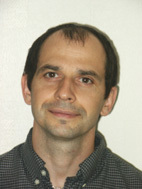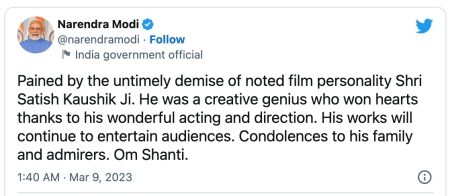Marc Abrahams's Blog, page 40
March 22, 2023
Arachnonecrocapitalism / Climate change nasality / Collision siding / Trivial superpowers
This week’s Feedback column (that I write) in New Scientist magazine has four segments. Here are bits of each of them:
Arachnonecrocapitalism — The death of a spider in Texas has led to the birth of a philosophical movement, with Rice at both ends. This life-and-death saga began with a recent, almost instantly famous experiment at Rice University in Houston, Texas. A team of mechanical engineers converted a dead spider into a robotic, pneumatically actuated gripper tool….A little on the nose — There has been uncertainty about whether changing climate, over the very long haul, has affected the shape of the human nose, Ted Schark informs Feedback. This is why researchers at Pennsylvania State University, the University of Illinois, Trinity College Dublin in Ireland and KU Leuven in Belgium have looked into the matter. Their answer: yes, kinda, sorta….Taking sides — Go left or go right? Sheryl Bourgaize and Michael Cinelli at Wilfrid Laurier University and Bradford McFadyen at Laval University, all in Canada, addressed that choice face on in a series of forced encounters. They asked the specific question “How do people avoid a collision to the left-side or right-side of a single stationary pedestrian (interferer) of varying shoulder width and orientation?” …Trivial superpowers — Some people possess one or another trivial superpower, an ability to reliably do some particular task that – to them – seems mundane. Others persistently fail at this task, except once in a while by sheer luck. Here is an example. Glance at a container that is only partly full of some flowy substance – sugar, flour, juice or whatever – and you might instantly know (know, not guess!) whether that amount of glop will or won’t fit into a container of a particular different shape and size. Some people can do that. Most can’t….March 20, 2023
On the risk of failing to put failure in its place
Robert Kunzman‘s earnest TEDX talk “Putting Failure In Its Place” does not fail to emphasize the success of the study “Talent vs. Luck: The Role of Randomness in Success and Failure,” which won the the 2022 Ig Nobel Economics Prize for its authors, Alessandro Pluchino, Alessio Emanuele Biondo, and Andrea Rapisarda. Here’s video of Kunzman’s talk:
March 18, 2023
Guéguen Busted?
 SAGE publications today (March 18, 2023) published this “Item of Concern” about “Bust Size and Hitchhiking” and other papers they published that were co-authored by Nicolas Guéguen [pictured here], of whom we have written much over many years (and about whom our friends at Retraction Watch also have written much):
SAGE publications today (March 18, 2023) published this “Item of Concern” about “Bust Size and Hitchhiking” and other papers they published that were co-authored by Nicolas Guéguen [pictured here], of whom we have written much over many years (and about whom our friends at Retraction Watch also have written much):
March 15, 2023
Cola for Mice / Read a bicycle / Head Organ / Life in Salt
This week’s Feedback column (that I write) in New Scientist magazine has four segments. Here are bits of each of them:
Cola: a swell tale — … If you are a male mouse who drinks lots of Pepsi or Coca-Cola, and if you mainly enjoy reading manly adventure stories, get yourself a copy of the latest write-up from researcher Z. Gong, pour yourself a tall, cool glass of cola and hunker into your favourite reading chair for a hell of a good time….Learning to read a bicycle — … A wonder-provoking diagram of a bicycle is parked on page 100 of 21st Century Skills: Learning for life in our times by Bernie Trilling and Charles Fadel. The book, published in 2009, still gets attention, gaining appreciation in a recent study called “The complex associations between scientific reasoning and advanced theory of mind”….Head, Brain, Organ et al — … A few months ago, Dr Organ – Dr Jason Organ – was named the new editor-in-chief of the journal Anatomical Sciences Education. This added flesh to the nominative determinism tradition that is occasionally evident in body-parts-centric medical journals, starting (as far as Feedback is aware) with the publication Brain. Henry Head and Russell Brain were each its editor, at different times…Lots of life in salt — … When people enliven a bland meal by adding salt, they are, in many (and maybe all) cases, adding life to that food. Tiny, maybe tasty, bits of life. Most commercial salt is home to microscopic species. Leila Satari, Alba Guillén, Adriel Latorre-Pérez and Manuel Porcar, all at the University of Valencia, Spain, went looking for that life in six different kinds of table salt. They found it, everywhere….March 14, 2023
Can’t Do That, Affixing-Eyes-to-Automobiles, 57 People and a Fake Food Buffet
Research studies about things people can’t do, about putting eyes onto the front of automobiles, and about 57 people and a fake-food buffet are featured in the “Improbable Research Review” column in the special Super-Advanced Theories issue (volume 29, number 1) of the magazine.
You can read that article free online. Better still, buy a copy of the issue (it’s in PDF form). Or better better still, subscribe to the magazine!
March 13, 2023
Nuts
Nuts are prevalent in the Journal of Nuts. Some (perhaps all) of its articles have interesting authors. One, at least, of the authors of the following article is notably, almost nuttily prolific. That article is:
“How Did Globalization Boost the Nuts Production in Indonesia?” Eko Hendarto, Sandhir Sharma, Maria Jade Catalan Opulencia, Mohammed Khudair Hasan, Aiman Mohammed Baqir Al-Dhalimy, Iskandar Muda, Mohammed Abed Jawad, Krishanveer Singh, and Noor Abdul Ameer Jabar, Journal of Nuts, vol. 13, no. 3, September 2022, pp.199-210.
Co-author Maria Jade Catalan Opulencia is mentioned in a new report, in the Retraction Watch blog, called “After a sleuth reveals a paper with authorships advertised for sale, it’s retracted.” That report quotes an academic detective named Nick Wise:
For example, Wise noted, Maria Jade Catalan Opulencia, one of the authors of the retracted paper whose affiliation is listed as the college of business administration at Ajman University in the United Arab Emirates, “suddenly published over 50 papers last year, despite having barely published before, and many of them have matching Facebook adverts on Pubpeer.”
Opulencia is listed as a coauthor on three additional retracted papers about cancer biology, fuel cells, and nanoelectronics for which Wise identified authorships for sale. Her most recent paper on Google Scholar indicates it was published in Linguistica Antverpiensa, a Belgian linguistics journal that we previously reported had been targeted by hijackers attempting to sneak paper mill manuscripts into databases like Scopus under the auspices of a legitimate journal.
Praise for OpalanciaWe found a 2016 blog item (by Roger B Rueda) praising Opalencia. Rueda wrote: “She is indeed of the highest calibre. A gold laid waste by the university in the Philippines which didn’t understand her worth and importance.” Rueda’s blog item carries this headline: “Dr Maria Jade Catalan Opulencia and her other colleague nominees for the 2016 Global Top 50 Educators Award”.
It’s not just nuts.
Opalancia is credited with co-authorship on an impressively, delightfully wide variety of research papers, as you can see by doing a search with Google Scholar.
March 9, 2023
Satish Kaushik, who helped living-dead Ig Nobel Prize winner Lal Bihari, has himself died
Indian filmmaker , who in 2003 helped Lal Bihari, founder of the Association of Dead People, accept the Ig Nobel Peace Prize — and who years later produced a feature film about the life and death and life of Lal Bihari — has himself died. This report in Business Standard brings the sad news:
Satish Kaushik, master of the spontaneous who radiated joie de vivre
From Jaane Bhi Do Yaaron and Mr India to Mandi, Kaushik leaves an indelible mark on Indian cinema
Kaushik, who passed away on the night of March 8 in Gurugram, made the journey from Delhi’s Karol Bagh to the Mumbai movie industry (via a couple of institutional pit stops that shaped him) without ever losing his solid moorings….
He nurtured his own dream of directing his first global film. Initially titled Lal Bihari Mritak, it was about an Uttar Pradesh villager deemed dead in the state’s revenue records and forced to fight tooth and nail to prove he was alive…. It took Kaushik a decade and a half to bring the project to fruition. It took the form of the Zee5 original film Kaagaz, starring Pankaj Tripathi.
Satish Kaushik to the Rescue, in 2003 Satish Kaushek (left) with Lal Bihari. Photo: The Times of India.
Satish Kaushek (left) with Lal Bihari. Photo: The Times of India.In 2003 we awarded that year’s Ig Nobel Peace Prize to Lal Bihari, of Uttar Pradesh, India, for a triple accomplishment: First, for leading an active life even though he has been declared legally dead; Second, for waging a lively posthumous campaign against bureaucratic inertia and greedy relatives; and Third, for creating the Association of Dead People. Lal Bihari overcame the handicap of being dead, and managed [with help from Satish Kaushik] to obtain a passport from the Indian government so that he could travel to Harvard to accept his Prize. However, the U.S. government refused to allow him into the country. Satish Kaushik arranged for (and funded) their mutual friend Madhu Kapoor to came to the Ig Nobel Ceremony and accept the Prize on behalf of Lal Bihari. You can watch video of that acceptance, at the Ig Nobel Ceremony:
Several weeks later, the Prize was presented to Lal Bihari himself in a special ceremony in India.
A Tribute from the Prize-winning Prime MinisterThere are many tributes in India this week to Satish Kaushik. Observer Voice reports that a special tribute comes from the country’s prime minister:
The Prime Minister, Shri Narendra Modi has condoled the passing away of noted film personality, Shri Satish Kaushik. The Prime Minister tweeted: “Pained by the untimely demise of noted film personality Shri Satish Kaushik Ji. He was a creative genius who won hearts thanks to his wonderful acting and direction. His works will continue to entertain audiences. Condolences to his family and admirers. Om Shanti.”
Narendra Modi is himself an Ig Nobel Prize winner. The 2020 Ig Nobel Prize for Medical Education was awarded to Jair Bolsonaro of Brazil, Boris Johnson of the United Kingdom, Narendra Modi of India, Andrés Manuel López Obrador of Mexico, Alexander Lukashenko of Belarus, Donald Trump of the USA, Recep Tayyip Erdogan of Turkey, Vladimir Putin of Russia, and Gurbanguly Berdimuhamedow of Turkmenistan, for using the Covid-19 viral pandemic to teach the world that politicians can have a more immediate effect on life and death than scientists and doctors can.
March 8, 2023
Non-fossil / Quantum sentence / Unrelax music / Slime mold watch
This week’s Feedback column (that I write) in New Scientist magazine has four segments. Here are bits of each of them:
Fossil or beehive? — … And the snideness? That isn’t unusual, either. Nor is it new. In 1934, the Journal of the Washington Academy of Sciences printed a report called “The supposed fossil ear of maize from Cuzco, Peru”.Quantum black holes — Construct a list of every possible phrase that can be made by combining 17 words chosen at random from an English-language dictionary. One of those 17-word phrases will be: “It is thereby expected that all sufficiently advanced civilizations ultimately employ black holes in their quantum computers.” …Music for unrelaxing — A project at the Max Planck Institute for Empirical Aesthetics in Frankfurt, Germany, is looking into the “effects of disliked music on psychophysiology”. The research, as described by Julia Merrill, Taren-Ida Ackermann and Anna Czepiel, is both painstaking and painsgiving. They say that “participants listened to three self-selected disliked musical pieces which evoked highly unpleasant feelings”….Slime Mold Watch — A new variety of smartwatch is like Tamagotchi, but with real life to it – it is partly slime mould….March 7, 2023
A Prospect of Success by Purposely Failing the 97th Time
Walking, a lottery, failure, frenzy, the number 97… this study has all of those, and perhaps other things as well:
“Failure is Also an Option,” Antoine Amarilli, Marc Beunardeau, and Rémi Géraud, and David Naccache, in The New Codebreakers, Springer, Berlin, Heidelberg, 2016, pp. 161-165. The authors report:
“The Nijmeegse Vierdaagse is the world’s most famous walking event. The walk is known to be challenging and each year about 10% of the participants drop out. In 2016 the Vierdaagse will celebrate its centennial anniversary. In the walker community there is a frenzy about participating in the centennial walk. Initially, the rules governing participation were the following: A walker who succeeds the n-th walk is admitted to walk at year (n + 1). Walkers who fail a walk enter a lottery. If they win the lottery, they are also granted tickets to the walk. Finally, walkers who fail two successive draws are admitted to the walk following the second lottery failure. In 2013, while computing our chances to be admitted to the centennial walk, we noticed a rather counterintuitive fact: By purposely failing the 97-th walk, walkers can actually… increase their chances to attend the centennial walk.”
March 2, 2023
Moss excitement / Astro on Burglary / ABBAisms / Safe Tandoori
This week’s Feedback column (that I write) in New Scientist magazine has four segments. Here are bits of each of them:
Moss excitement — “It’s not every day you can watch moss grow!” says a press release from the University of Wollongong (UOW), Australia. Too true. The details in the press release lead to an invitation….Astronomers and burglary — University of Sydney astronomer Charlie Sharpe takes time (and space) in a new study to thank the New South Wales police “for ensuring a swift return of his belongings, including his laptop, after having them burgled from his house a few weeks before this paper’s submission”. Sharpe also thanks his “neighbour, Gary, who spotted the burglar and, rather than simply phoning the police and staying put…Knowing Me, Knowing You — The phrase “Knowing Me, Knowing You” appears in the title of many scholarly publications, and also a song by a Swedish singing group. One of the newest research reports to do this is called “‘Knowing me, knowing you’: Personalized explanations for a music recommender system”. It shares little…Tandoori safety — There are no sure things in life, probably. Food technology experts, like other kinds of experts, find ways to express the certainty that something is probably certain. The National Institute of Food Technology Entrepreneurship and Management, in Sonipat, Haryana, India, supplies a new example, with the concluding assertion that “the consumption of tandoori chicken may be considered as safe”….Here is video of the song that inspired the titles of well more than 200 scholarly publications:
Marc Abrahams's Blog
- Marc Abrahams's profile
- 14 followers




